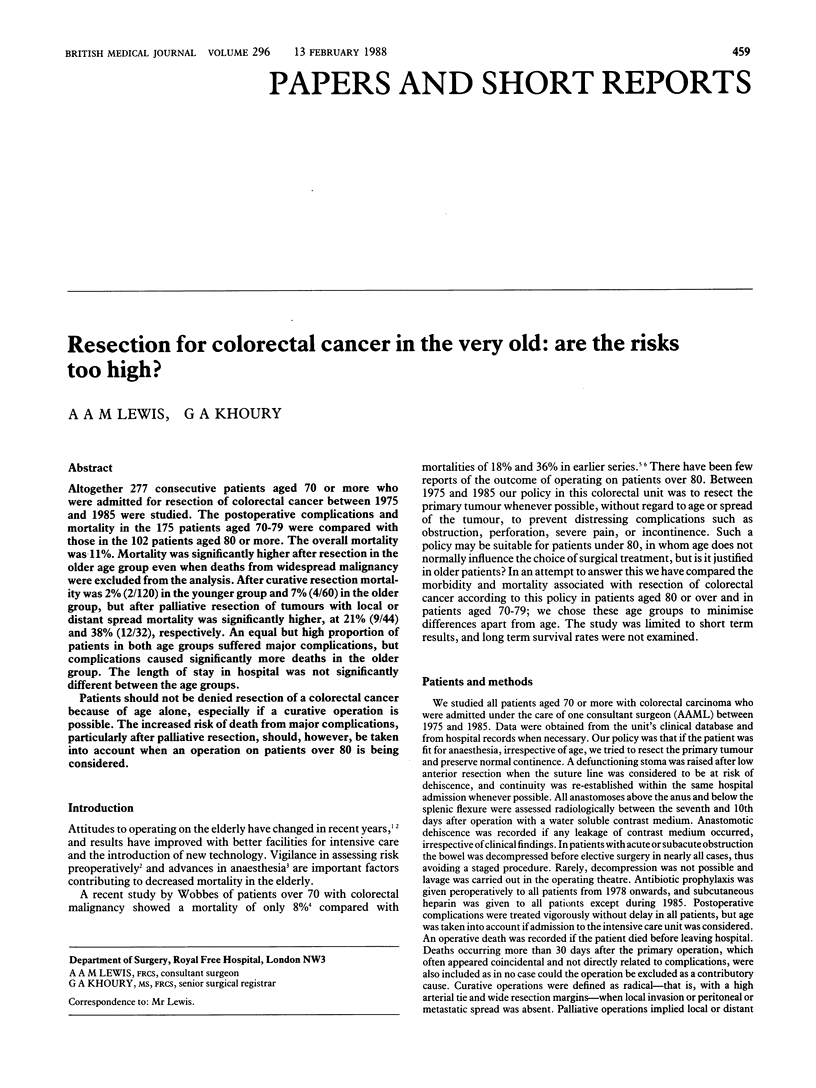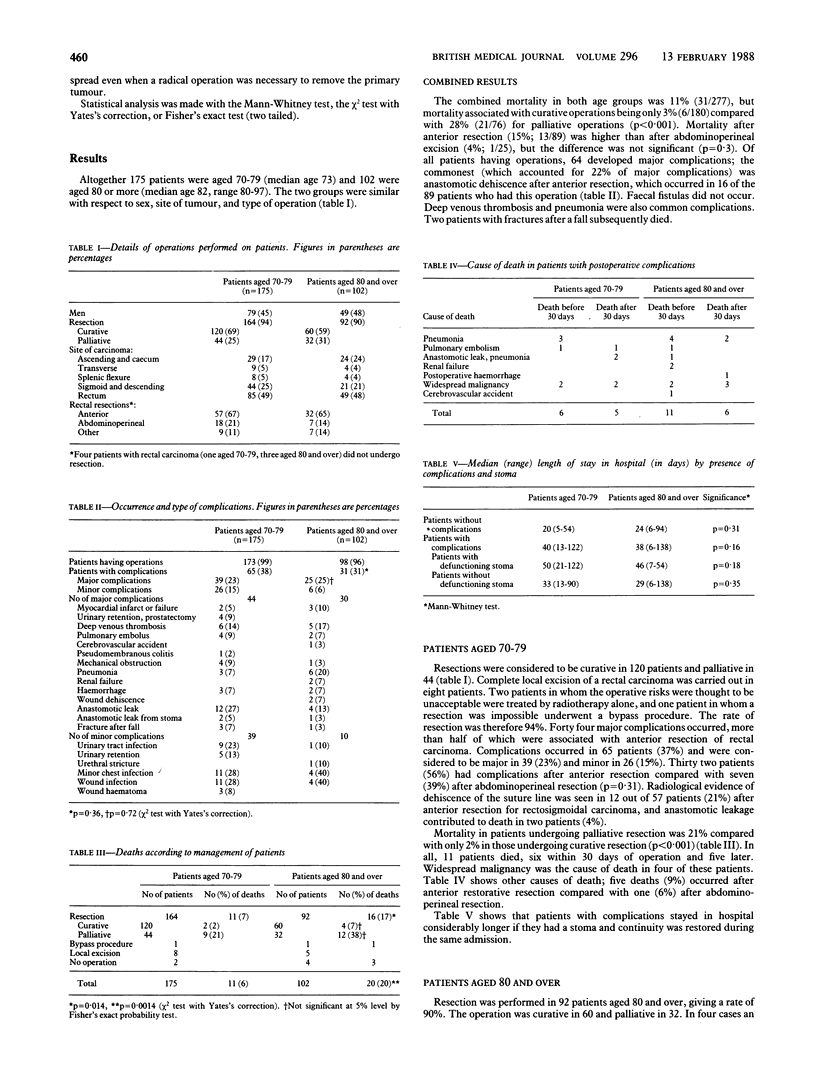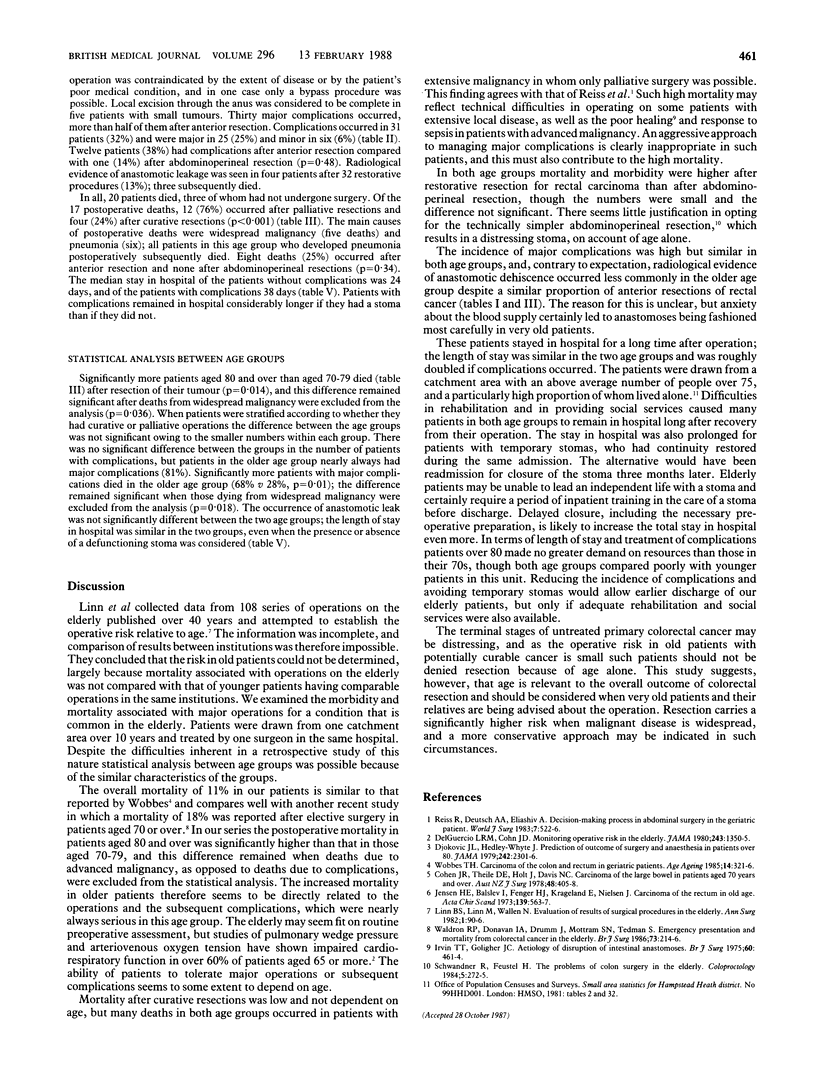Abstract
Altogether 277 consecutive patients aged 70 or more who were admitted for resection of colorectal cancer between 1975 and 1985 were studied. The postoperative complications and mortality in the 175 patients aged 70-79 were compared with those in the 102 patients aged 80 or more. The overall mortality was 11%. Mortality was significantly higher after resection in the older age group even when deaths from widespread malignancy were excluded from the analysis. After curative resection mortality was 2% (2/120) in the younger group and 7% (4/60) in the older group, but after palliative resection of tumours with local or distant spread mortality was significantly higher, at 21% (9/44) and 38% (12/32), respectively. An equal but high proportion of patients in both age groups suffered major complications, but complications caused significantly more deaths in the older group. The length of stay in hospital was not significantly different between the age groups.
Patients should not be denied resection of a colorectal cancer because of age alone, especially if a curative operation is possible. The increased risk of death from major complications, particularly after palliative resection, should, however, be taken into account when an operation on patients over 80 is being considered.
Full text
PDF


Selected References
These references are in PubMed. This may not be the complete list of references from this article.
- Cohen J. R., Theile D. E., Holt J., Davis N. C. Carcinoma of the large bowel in patients aged 70 years and older. Aust N Z J Surg. 1978 Aug;48(4):405–408. doi: 10.1111/j.1445-2197.1978.tb04886.x. [DOI] [PubMed] [Google Scholar]
- Djokovic J. L., Hedley-Whyte J. Prediction of outcome of surgery and anesthesia in patients over 80. JAMA. 1979 Nov 23;242(21):2301–2306. [PubMed] [Google Scholar]
- Irvin T. T., Goligher J. C. Aetiology of disruption of intestinal anastomoses. Br J Surg. 1973 Jun;60(6):461–464. doi: 10.1002/bjs.1800600612. [DOI] [PubMed] [Google Scholar]
- Jensen H. E., Balslev I., Fenger H. J., Kragelund E., Nielsen J. Carcinoma of the rectum in old age. Acta Chir Scand. 1973;139(6):563–567. [PubMed] [Google Scholar]
- Linn B. S., Linn M. W., Wallen N. Evaluation of results of surgical procedures in the elderly. Ann Surg. 1982 Jan;195(1):90–96. doi: 10.1097/00000658-198201001-00013. [DOI] [PMC free article] [PubMed] [Google Scholar]
- Reiss R., Deutsch A. A., Eliashiv A. Decision-making process in abdominal surgery in the geriatric patient. World J Surg. 1983 Jul;7(4):522–526. doi: 10.1007/BF01655944. [DOI] [PubMed] [Google Scholar]
- Waldron R. P., Donovan I. A., Drumm J., Mottram S. N., Tedman S. Emergency presentation and mortality from colorectal cancer in the elderly. Br J Surg. 1986 Mar;73(3):214–216. doi: 10.1002/bjs.1800730320. [DOI] [PubMed] [Google Scholar]
- Wobbes T. Carcinoma of the colon and rectum in geriatric patients. Age Ageing. 1985 Nov;14(6):321–326. doi: 10.1093/ageing/14.6.321. [DOI] [PubMed] [Google Scholar]


